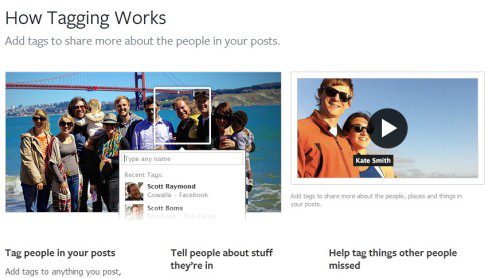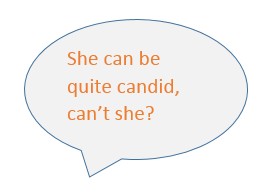What do price, Facebook, bags and the English Language have in common? See if you can guess from these pictures here. Hint, the answer is already on the title of the post.
Well, have you found it? It is tagging. Price tags, blog taglines, question tags, Facebook tags and bag tags.
Price tags are typically used to help customers recognise the value of the items they may be interested to buy while shopping. It is commonly found on clothings. It is great to see a price tag that reads 1/2 price or 30% discount. It is easy and hits the customer right on the mind. If you are looking for a bargain, discount price tags will be what you will looking out for.
Bag tags are useful while travelling to help you find your luggage easily as you wait at the belt. It is almost never used on handbags. Bag tags are also used on gift bags, great when you have lots of presents for just as many people in your list.
 It is my least likeable use of a tag. Facebook tags are like cancer cells in the bone. You can privatise or remove tags, but another one just pops up out of nowhere. If anything, it is always misused. It is the very reason why I don’t like having a Facebook account. It makes no sense to be part of a picture that I am not even in. Or an occasion that I have not even been to.
It is my least likeable use of a tag. Facebook tags are like cancer cells in the bone. You can privatise or remove tags, but another one just pops up out of nowhere. If anything, it is always misused. It is the very reason why I don’t like having a Facebook account. It makes no sense to be part of a picture that I am not even in. Or an occasion that I have not even been to.
Removing tags is a chore, similar to if not worse than deleting your junk mails in mail boxes. Spring cleaning is not part of the deal when we join Facebook, is it? Who would have imagined that we have to clean up after use, on the virtual world that does not even feel real. Words on the screen come alive even more than the pictures that are posted. Especially when the word is as a one syllable, short vowel sound “TAG”.
The English Tag Question
 Tagging is a way of inviting others to agree with what you say. In the picture above, the tag question is ‘can’t she?’ Tags are more commonly used to invite agreement to what we say about a subject or comment on. When a tag is used in a question, it will be expressed with an upward inflexion as if throwing out a hook beckoning for a response. Tags do help you start a conversation. Sometimes, tag questions are misconstrued. I frown upon a tag question if it is a subject I know intimately. Not saying anything is like ignoring the ignorant. Responding to a tag question, however, may drive you to a corner which you do not like.
Tagging is a way of inviting others to agree with what you say. In the picture above, the tag question is ‘can’t she?’ Tags are more commonly used to invite agreement to what we say about a subject or comment on. When a tag is used in a question, it will be expressed with an upward inflexion as if throwing out a hook beckoning for a response. Tags do help you start a conversation. Sometimes, tag questions are misconstrued. I frown upon a tag question if it is a subject I know intimately. Not saying anything is like ignoring the ignorant. Responding to a tag question, however, may drive you to a corner which you do not like.
If a tag question is as simply as:
“The tea is too sweet isn’t it?” If you like your tea sweet, it wouldn’t matter to you would it? You can disagree though. “I think its all right for me because I like my tea sweet. This is all right.
But if a tag question is:
“You are so fickle minded, aren’t you?” The first part before the tag question is an opinion addressed directly at you. If you are just having a great time shopping, indecision is not the same as fickle. You don’t want to be called fickle minded just because you are not able to decide about what to buy. So you tend to not only disagree but may well put up an argument. Shopping can’t be a good experience after this, can it?
The way I look at it is, when tag question is used appropriately, it can be a great opening for a great conversation and dialogue. When used only to provoke an argument or a disagreement, it leaves behind a bad taste even for the most fluent of speakers.
Document Tags

The mind is a very useful search tool, especially when it only has a handful of data to work with. Tags becomes useful for us as it helps us find information easily without having to think too much. There is no point in saving lots of information on your pc when you have no idea of how to find them later. Folders are great but we tend to forget which folder our information is stored in. We generally do not have standards to work with. We name folders the way we think will suit us at that very moment. Then something else comes along and we build another folder. We can’t predict what sort of information need to be stored. We just know and decide as and when it happens. Which is why we always end up with unsorted data, a lot like the clutter in the house.
End of part 1.


Trackbacks/Pingbacks